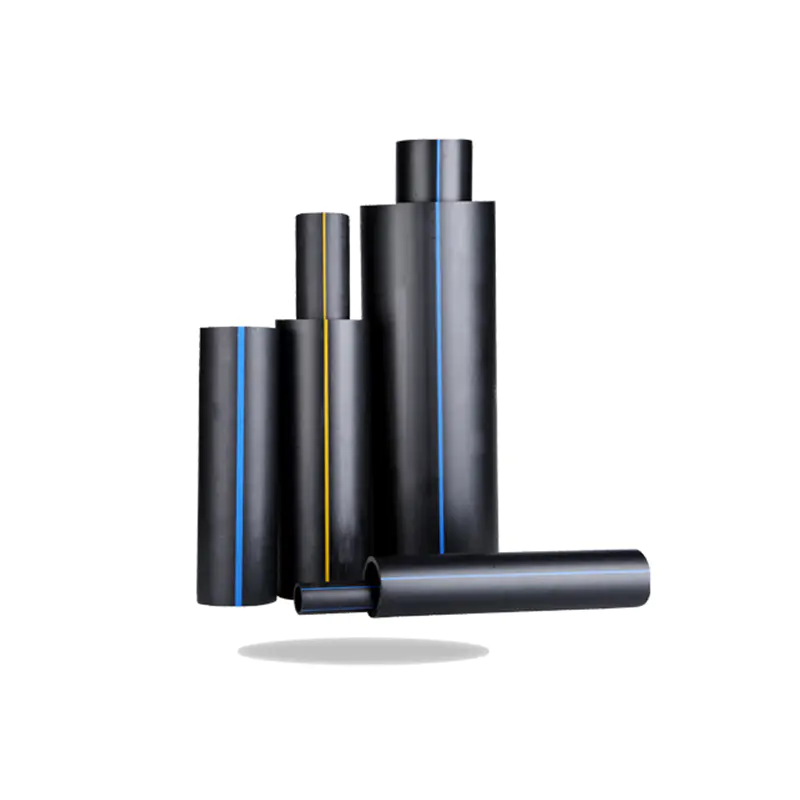HDPE pipes for water have become a preferred choice for water transportation due to their exceptional strength, toughness, and durability. Here's an in-depth analysis of these advantages:
HDPE pipes exhibit high tensile strength relative to their weight. This allows them to withstand significant internal water pressure without cracking or bursting, making them suitable for both high-pressure and low-pressure water systems.
The material’s resistance to environmental stress cracking ensures reliability under mechanical stresses, such as soil movement or dynamic load conditions, without failure.
HDPE pipes maintain their structural integrity even under sudden impacts, such as accidental drops during installation or external force from buried applications.
Unlike brittle materials, HDPE pipes are flexible and can bend without breaking, making them ideal for installations in terrains with uneven surfaces or shifting soil conditions.
This flexibility reduces the risk of pipe failure due to ground movements, earthquakes, or thermal expansion.
HDPE pipes resist abrasion from transported water with sediments or other solid particles, making them durable in harsh environments like mining or irrigation.
HDPE pipes retain their toughness in low temperatures, even when water inside them freezes, significantly reducing the risk of pipe bursts compared to materials like PVC or metal.

Unlike metal pipes, HDPE pipes are inert to chemical reactions, making them immune to rust, corrosion, and degradation from chemicals present in water or surrounding soil.
Modern HDPE pipes include UV stabilizers, enhancing their resistance to sunlight exposure during outdoor installations, thus extending their lifespan in above-ground applications.
HDPE pipes have an estimated service life of over 50 years under normal operating conditions. This longevity results in reduced maintenance and replacement costs over time.
HDPE pipes are typically joined using heat fusion or electrofusion, creating leak-proof joints that are stronger than the pipe itself. This reduces the likelihood of failures at connection points, a common issue in other piping systems.
HDPE pipes can perform effectively across a wide temperature range (-40°C to 60°C). This resilience makes them suitable for use in both hot and cold climates without degradation.
Chemical Resistance
The material’s inertness protects against a wide range of chemicals, including salts, acids, and alkalis, ensuring durability in challenging water supply systems or industrial applications.
The toughness of HDPE allows it to absorb and redistribute external shocks, such as vibrations from nearby heavy machinery or traffic, without sustaining damage.
The long service life and resistance to common issues like corrosion and cracking translate to minimal repair and maintenance needs, reducing operational costs.
Despite its strength, HDPE is lightweight compared to metal pipes, simplifying transportation and installation, which further enhances its practical durability.
HDPE pipes can be used in a wide range of environments, including underground, above-ground, submerged, or trenchless installations, without compromising their structural integrity.
HDPE pipes stand out for their strength, toughness, and durability, making them a reliable and cost-effective choice for water transportation systems. Their resistance to pressure, impact, and harsh environmental conditions ensures long-lasting performance in both residential and industrial applications. By minimizing maintenance and replacement costs, HDPE pipes provide excellent value over their extended service life.

 简体中文
简体中文 English
English русский
русский Español
Español Français
Français عربى
عربى Português
Português 日本語
日本語 italiano
italiano Nederlands
Nederlands Polskie
Polskie












